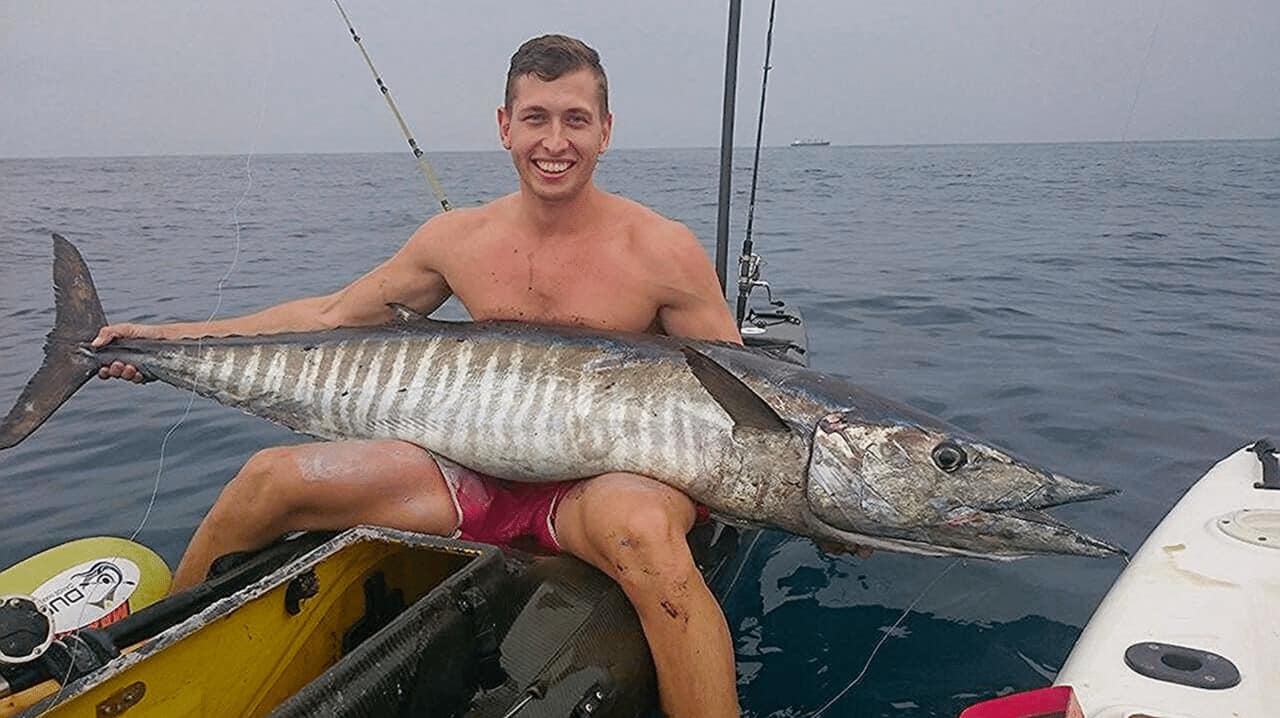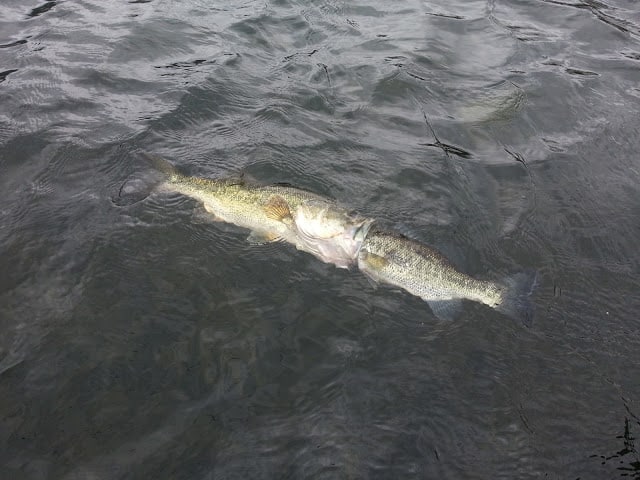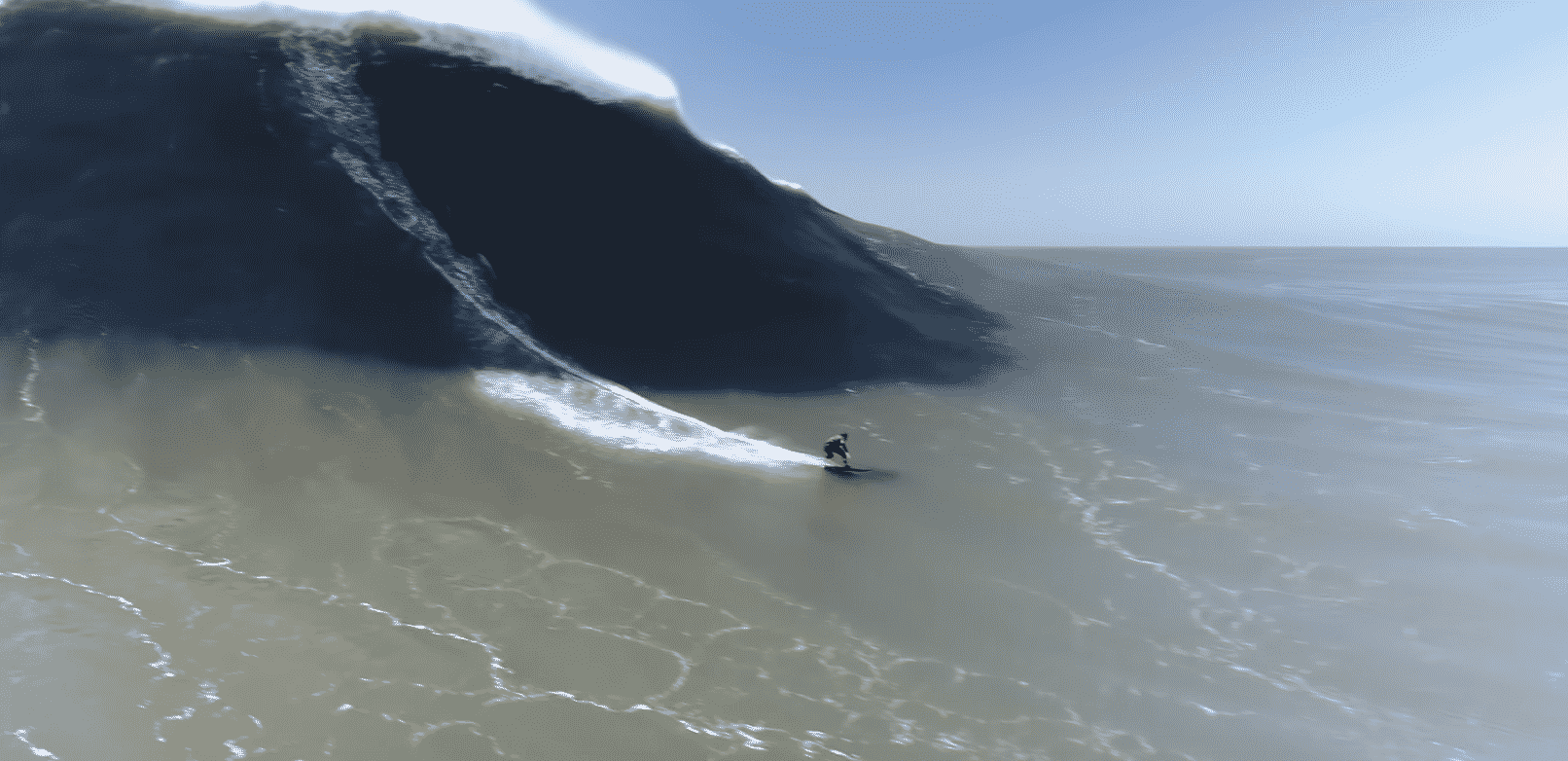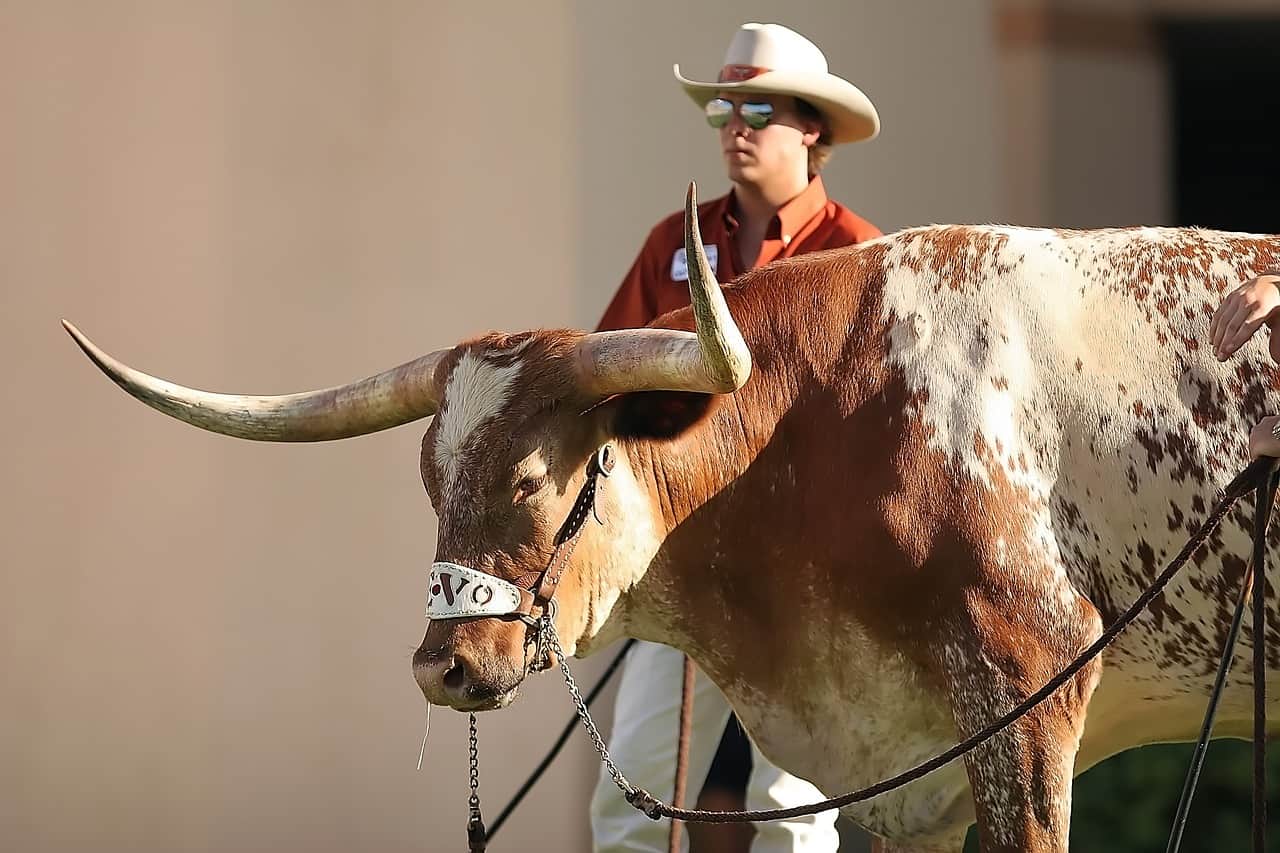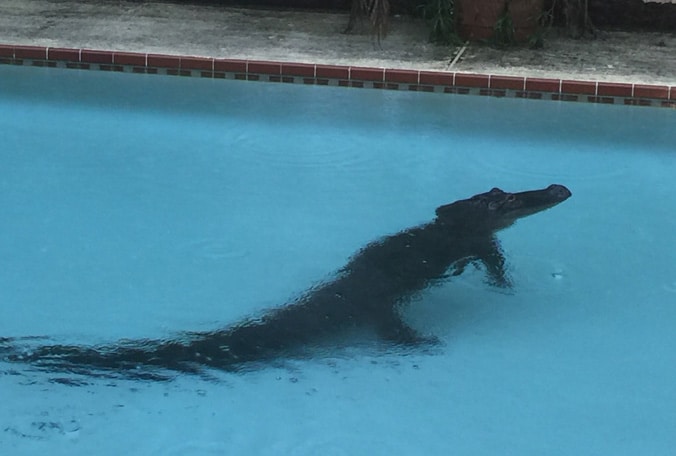
It’s not uncommon to hear about a gator being found in the random swimming pool every now and then, but two being found in the same area at the same time is insane.
Elizabeth Foster, of Temple Terrace, and Nancy Bloch, of Palm Harbor, both discovered an alligator in their pools on Wednesday. The alligators had gained access to the pool by breaking screens in the enclosures in both cases.
Foster came home to discover a 250 pound nine-foot gator relaxing in her pool and felt so special the gator chose her pool, since the closest body of water is a half mile away, that she decided to name him “Loch Ness.”

Image: Elizabeth Foster

Image: Elizabeth Foster
She called a trapper to help remove her newly discovered unwelcome guest from her pool. The trapper said this was the largest alligator he’d captured from a Tampa pool, according to Foster.
“I was headed towards the pool pump and something caught my eye and so I looked and there was a giant alligator in my pool,” Foster said. “He chose my pool, so I felt very special. So, I thought I should name him,” she said. “It was a male. So, I thought, yeah, he’s my Loch Ness Monster.”
Bloch says she discovered her gator – measuring seven-and-a-half feet – around 11:30 that same night, calling the Florida Fish and Wildlife Conservation Commission upon realizing just what it was her dog was barking at.

Image: Nancy Bloch
She believes that this particular gator was a resident of the pond right by her home.
“I went to see what she was barking at and I saw a very large shadow on the bottom of the pool. So, it was quite a sight,” she said. “They [FWC] said it was the right thing to do to call them. Don’t try to get it out, don’t wait until morning. Just call them.”
This time of year, which is mating season (March-May), always sees an increase in alligator activity due to warmer weather, according to Gary Morse of the FWC.

